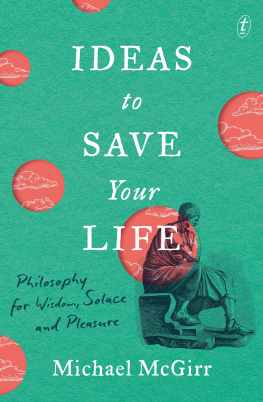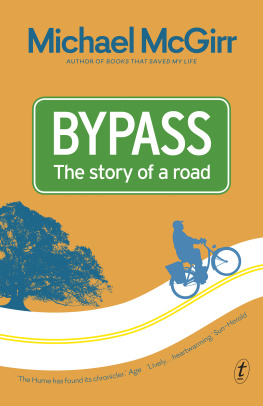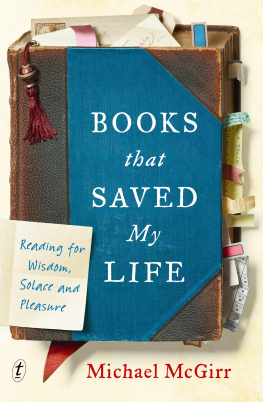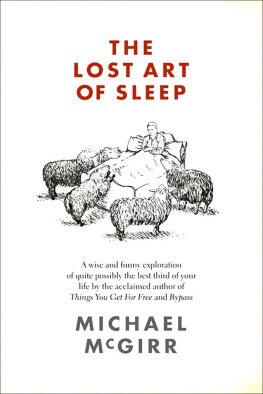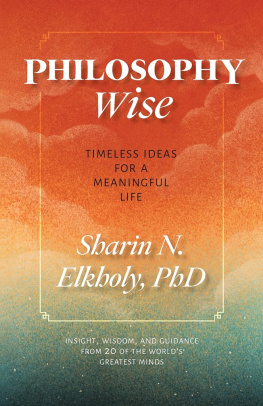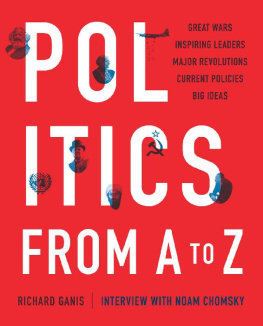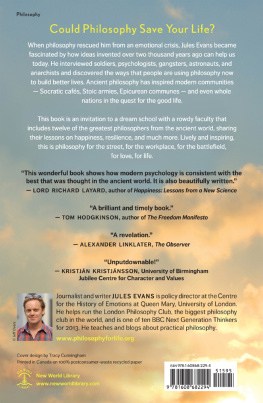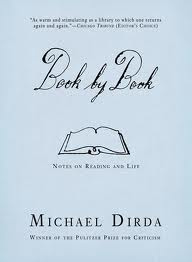Michael McGirr is the bestselling author of Books that Saved My Life, Snooze, Bypass and Things You Get for Free. He has reviewed almost one thousand books, his short fiction has appeared in publications in Australia and overseas, and he has been publisher of Eureka Street and fiction editor of Meanjin. He works in international aid and development for a large NGO, and lives in Melbourne with his wife, Jenny, and their three teenage children.
This book is about the quest for order in a perplexing world.
Ideas to Save Your Life follows Michael McGirrs much-admired Books that Saved My Life (2018). This time, instead of sharing his love of literature, McGirr shares his love of philosophy, focusing on the works of twenty-plus eminent thinkers across history.
The book goes back to Pythagoras and comes forward to the contemporary Australian Frank Jackson; back to Mungo Woman and forward to Martha Nussbaum, by way of Simone Weil and Iris Murdoch. It is animated by two related questions: from where do we draw a sense of lifes purpose? And how can philosophy make life better? It ranges widely across subjectsfrom solitude to community, language to order, experience to ecstasy, the idea of good to that of a good idea.
McGirrs approach is warm and inviting. Drawing on his many years of teaching philosophy to teenagers, he shares stories from his life and the lives of others. Ideas to Save Your Life is often funny, but it is always serious about the task of philosophy. It makes the impenetrable accessible, the indescribable palpable, and invites you to change how you see the world.
In the end, I got lucky and found a new job, one which made me nervous but to which I felt a strong sense of call. I counted my blessings. On my first day travelling on the train to the new office, I noticed a young man leaning on the door of the carriage, absorbed in a book. He was the very image of the moment: he had a mask, a phone, tatts, a backpack, and his cap was turned backwards. Yet the book was a paperback of the Meditations of Marcus Aurelius, a work that is eighteen hundred years old. His copy was flagged with bookmarks.
We got chatting and he told me he preferred the work of Seneca. I wished I was staying on for a few more stops to hear about his interest in philosophy but our brief encounter still brought solace. As long as young people read philosophy on the train, there is hope. As long as we have an ear attuned to the wisdom of those who lived long before us, there is a future.
Actually, I had been offered two jobs and was flattered when the employer I turned down said he was disappointed. But I had a chance to try my hand in a new field and not many people of my age get that opportunity. The job I accepted involves working with a large international-aid organisation. I knew I could give my heart to this. I love the arm wrestle with a complacent culture, one that believes that those who live overseas in slums and refugee camps are not really our business. Philosophy is part of this arm wrestle. Its hunger to understand life creates change.
The organisation that employed me had embraced the Capability Approach articulated by Amartya Sen and Martha Nussbaum (see ). This approach builds on a rich sense of who the human person truly is. It identifies ten central human capabilities described by Nussbaum in The Cosmopolitan Tradition (2019): Life; Bodily health; Bodily integrity; Senses, imagination and thought; Emotions; Practical reason; Affiliation; Concern for other species; Play; and Control over ones environment.
I sensed that that both my mind and heart could be at home in this place. I just had to figure out how to do a job that was utterly unfamiliar to me. My interest in justice was being rudely bumped from the world of sausage sizzles, community walks and good intentions. I was confronted with a scale of need I had not appreciated before. If I felt small when I was looking for work, I felt even smaller now. And that was fine. I am slowly but surely approaching the point of invisibility, which is part of lifes purpose.
But only part. The other part is making people other than oneself more visible.
I miss teaching teenagers. There were many times when a student came to me after class with a burning question that often tested the limits of my ability. One day, we had been discussing the Wachowski sisters movie The Matrix (1999), which some members of the class disparaged because it was twenty years old. Heaven forfend, it was older than they were. I once had a student who asked: If Kant is so famous, how come we havent heard of him? It is challenging to respond to a question whose answer is obvious to you but inaccessible to the questioner.
The Matrix raises some valuable philosophical questions and has a decent cops-and-robbers story to keep the punters engaged. Some students will enjoy the antique technology in the film. Others may catch the references to Alice in Wonderland, a reminder that so many stories ostensibly written for children have philosophical fibre to digest.
The film is set in a world that has been destroyed in an environmental catastrophe and taken over by machines called sentient beings, which do a great job of imitating humans (see ). Lacking a source of power, they turn newly born humans into batteries, taking their body warmth to provide light and energy. To stop those battery-hen humans getting restless, their minds are plugged into the matrix, a simulated world in which life goes on pretty much as we know it and life is a form of palliation. Except that it isnt life. It is fake. None of the people in the simulated world know this.
Peter Weirs The Truman Show (1998) has a similar concern. Truman, the star of a reality TV show, lives in a perfect world. But it is fake, a game, a form of entertainment for millions of viewers who, for a time at least, are complicit in his captivity in a painless and pretty fiction. He has no control over the perfection by which he is anaesthetised. Likewise, those living in the matrix are happy but powerless. They dont know that the succulent steak they might be eating is a mirage.
A small number of humans live outside the matrix and work as guerrilla fighters on board a ship called the Nebuchadnezzar (the movie is replete with religious imagery). The crew of this ship manages to release from the matrix a person called Thomas Anderson whom they know as Neo, an anagram of One (yes, plenty of Platonic imagery as well.) Is he the One to lead them to the freedom of reality?
The most obvious questions the movie prompts are about where reality begins and ends. Is reality a mental construct in the way that the matrix is? Can different people inhabit different realities? These lead to deeper questions. Is a palatable falsehood preferable to an unpalatable truth? Is a comforting fiction better than a distressing non-fiction? There is an insidious phenomenon called confirmation bias, the tendency to believe only the things that accord with what we already think. We need also to be aware of comfort bias, the tendency to believe the things that offer comfort and leave us at peace under our intellectual doona. Solace is different. It recognises the reality of discomfort.
Most of us respect the idea of uncomfortable truth, at least notionally. But who has not told a relative of somebody who has died and whom you could not abide that you are sorry to have lost them? Who has not told a host that a meal was delicious when it wasnt? There is a certain sense in which civilisation needs to be a tissue of small falsehoods, so that we can all live together in something approaching harmony.
The philosophical godfather of The Matrix

